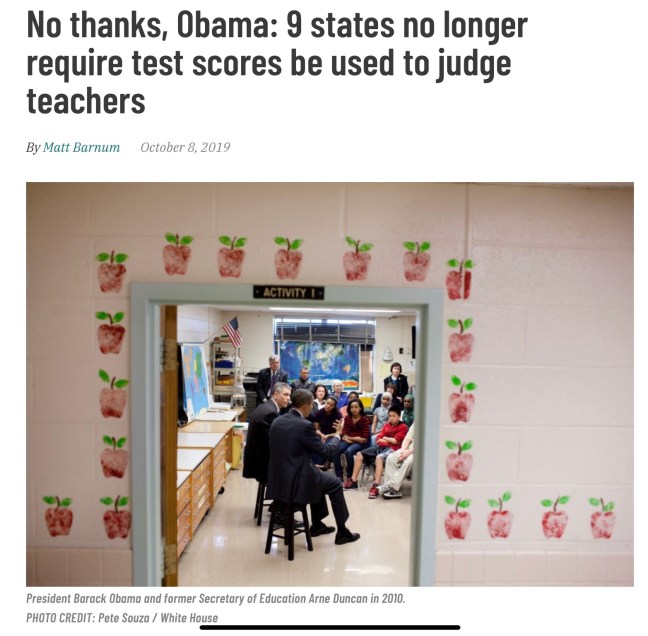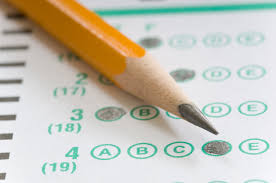Interestingly, fewer states are including student test scores in their teacher evaluation calculations. As of October 2019, 34 states will use student test scores while calculating teacher effectiveness, compared to 43 states in 2015 (read more here).
In addition to reading the aforementioned article, I recently engaged in a conversation with an advocate of using student test scores to calculate teacher effectiveness. I’m always amused when people say that educators need to be held accountable in similar ways to other professions (ie. The business world). These advocates want some means of measuring teacher effectiveness (as do we all), and equate students to “products” that are churned out at the end of the year. Obviously, we know that human beings are not “products” churned out on a factory belt. But, I’m always perplexed by these proponents. What I find most perplexing is that, the grand majority of the time, people touting/proposing/enacting these kinds of proposals:
- Are not teachers
- Have never been teachers
- Have no experience in PUBLIC education
- Have NO certification in education
- Run some kind of educational “philanthropy”
- See improving education as their “crusade”
I’m no statistician, but neither are many advocates for these types of reforms. I don’t understand how any teacher evaluation system could accurately account for all the variables that vastly impact student achievement (over which educators have MINIMAL TO ZERO control), including but not limited to (just to name a few of the big ones):
- Poverty
- Hunger
- Homelessness
- Family Mobility
- Single-Parent Households
- Parents’ Academic History/Ability
- Diet
- Physical Activity/Physical Health
- Mental Health
I’ve heard that professors at prestigious universities have been trying to quantify and control for these almost uncontrollable variables since the release of “A Nation At Risk” in 1983 (with minimal to no success). I’ve read about researchers developing ridiculous formulas to try and control for outside-of-school factors and then incorporating these formulas into teacher evaluation along with student performance. In terms of actually improving student achievement by tying student achievement to teacher evaluation, the data are inconclusive. Of course, I contend that the reason for this is that these types of evaluation systems do nothing to address the underlying symptoms of student academic performance, or lack there of. “Efforts to improve educational outcomes in schools, attempting to drive change through test-based accountability, are unlikely to succeed unless accompanied by policies to address the out-of-school factors that negatively affect large numbers of our nations’ students” (Berliner, 2015).
Don’t misunderstand me….
• Students should ALWAYS be showing growth
• Teacher evaluation should encompass some type of measurable/quantified measure
I’m NOT saying that because of the issues mentioned above, we should not hold educators accountable. I’m NOT saying that we as educators can’t do things in order to ameliorate some of these underlying issues. THAT’S NOT WHAT I’M SAYING AT ALL. In fact, much research exists that posits, yes, these out-of-school factors exist, but here are things we can do in our classrooms to help. I am saying that teacher evaluation systems that include student performance as a measure of teacher effectiveness will always be seriously flawed.
I’m interested to see how this trend continues. Clearly, the government plays a major role in these types of educational reform initiatives. Thus, I would say that, unfortunately, future evaluation changes will be the result of a continuously changing and volatile political climate.
Like/comment/share!




